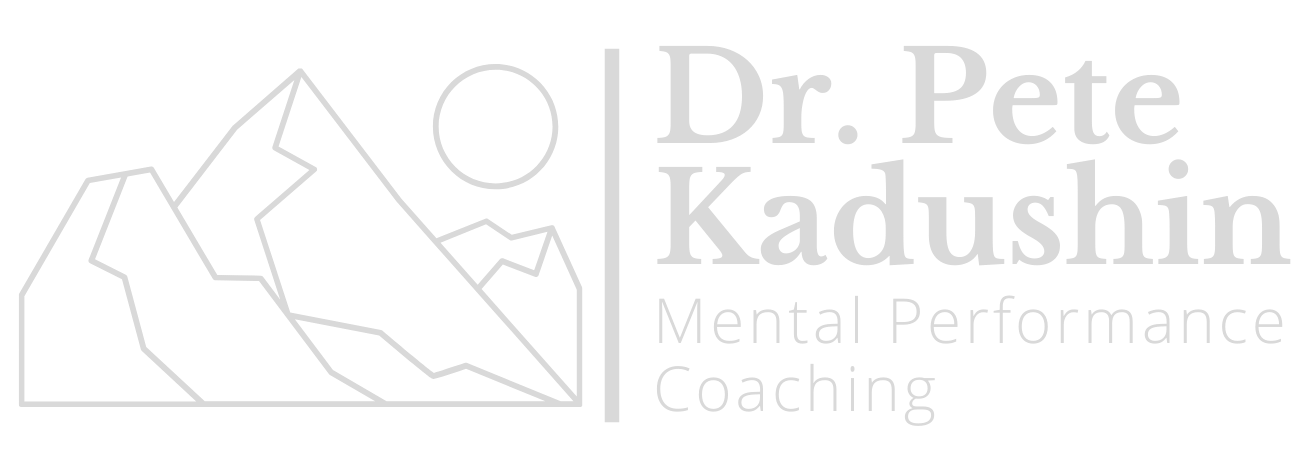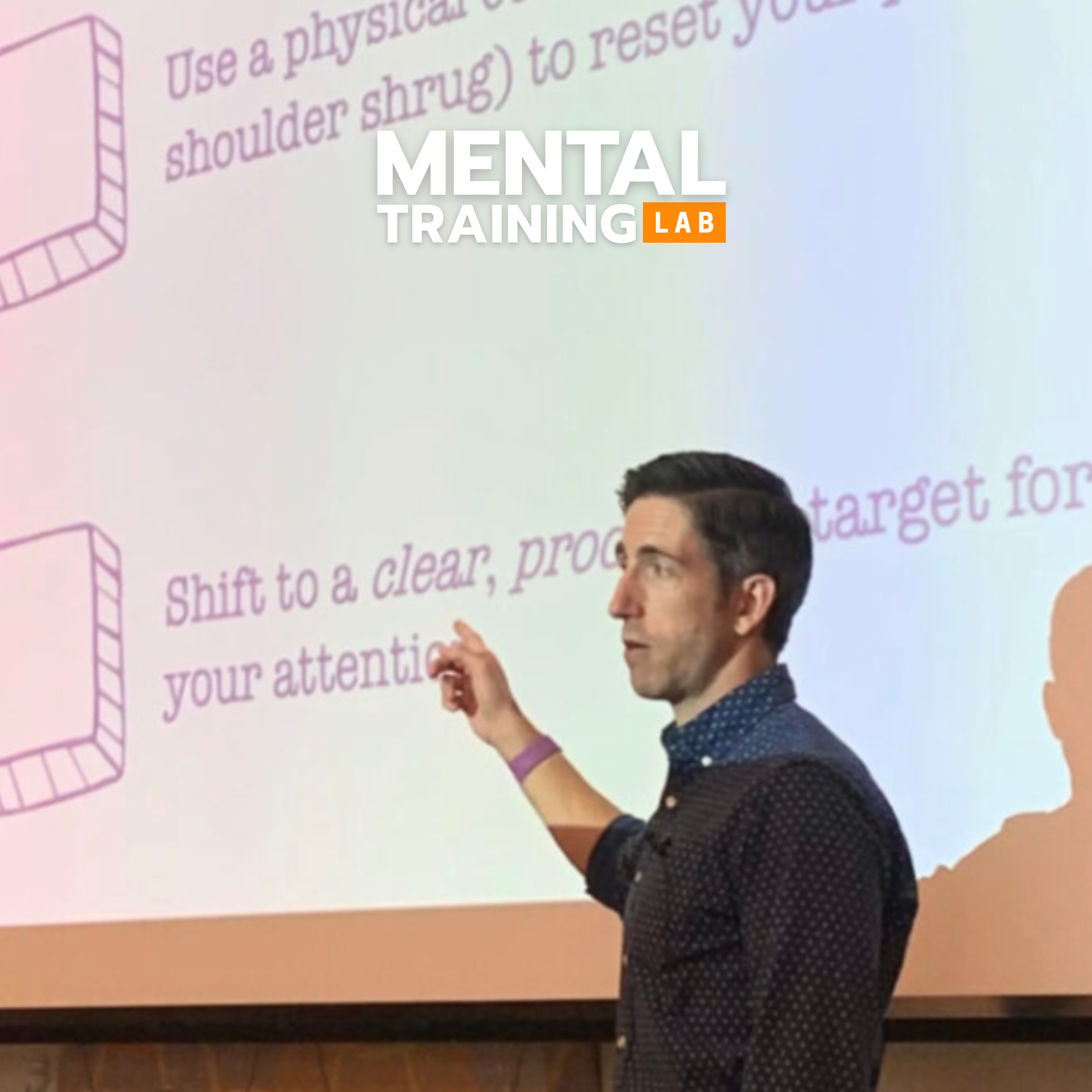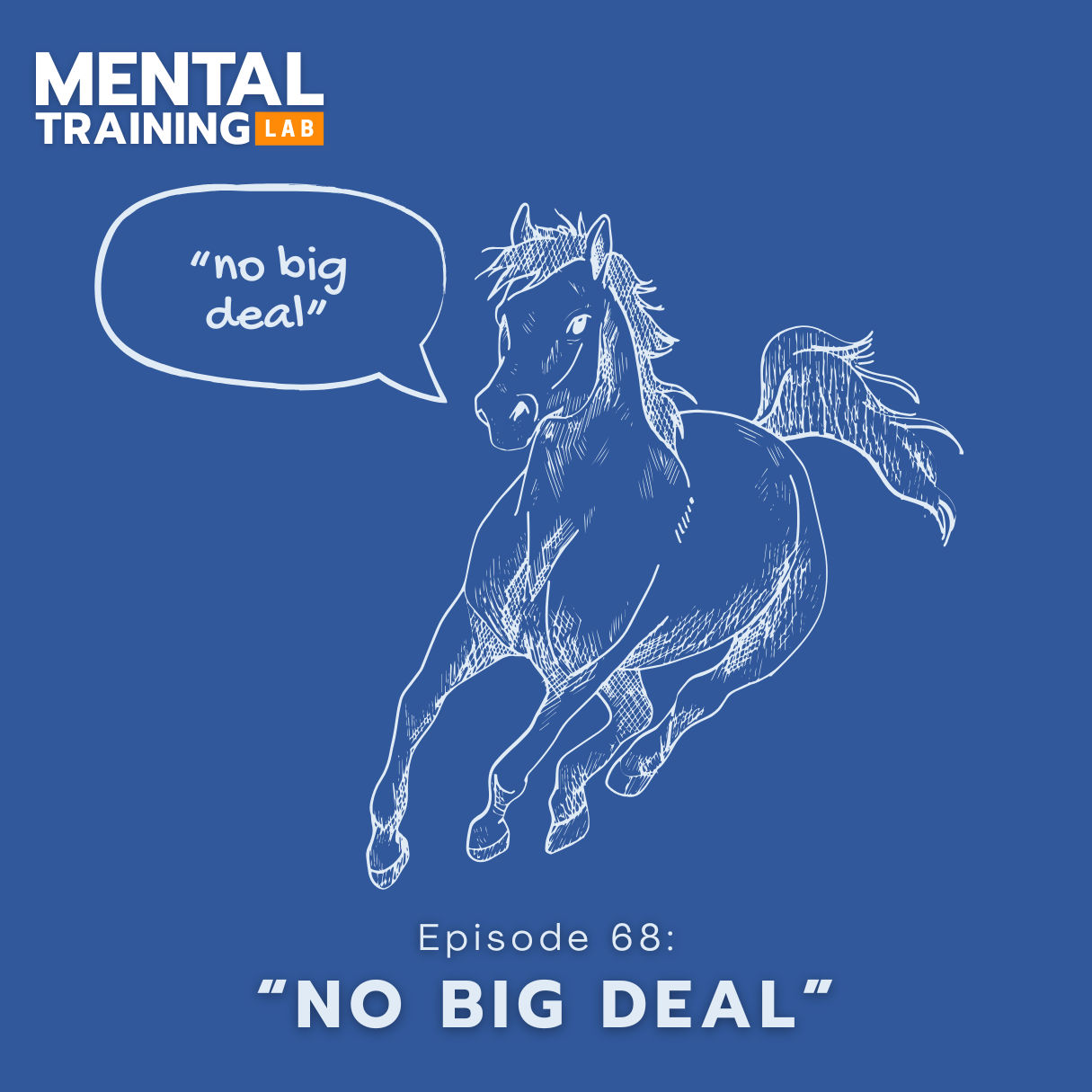Ep. 54: Leaving the Game: An Athlete's Guide to Transition, Identity, and Curiosity with Tessa West and Dr. Kirsten Cooper
As performers and high achievers, one of the most significant, yet often avoided, challenges we face is knowing when and how to transition away from something that has defined us for years. Whether you're an athlete, executive, or creative professional, the process of reevaluating your career and identity can feel daunting and isolating.
I was fortunate enough to sit down with two incredible experts: Tessa West and Dr. Kirsten Cooper. Together, we tackled the complex topic of career transitions, particularly in the world of elite athletics, though the insights shared resonate far beyond sports.
Before diving into the strategies, let me briefly introduce our guests, as their backgrounds deeply enrich the conversation.
Meet Tessa West & Dr. Kirsten Cooper
Tessa West is a Professor of Psychology at New York University and one of today's most prominent voices on interpersonal communication and workplace dynamics. Her acclaimed books, Jerks at Work and Job Therapy have become go-to resources for understanding and navigating workplace challenges. Her research uniquely positions her to examine the emotional and psychological struggles individuals face when questioning their career path, making her insights invaluable to anyone confronting identity and career transitions.
Dr. Kirsten Cooper’s expertise comes from both academic rigor and lived experience. A former U.S. Alpine Ski Team athlete, Kirsten knows firsthand the pressures of elite competition and the emotional upheaval that follows career-ending injuries. This profound personal experience guided her toward a doctorate in Clinical Psychology and a Master's in Performance Psychology. Today, she coaches senior leaders, elite athletes, and high performers through significant career transitions, drawing on her deep understanding of resilience, adaptability, and performance psychology.
Why Transitioning Is More Than Just Changing Jobs
The idea of transitioning often sparks feelings of uncertainty, ambivalence, and even fear. Our conversation explored why athletes—and high performers in any domain—often resist moving on, despite recognizing their need to grow or change.
Both Tessa and Kirsten emphasized that transitioning is not merely about choosing a new job or activity but fundamentally about reshaping one's identity. When your sense of self is intertwined with your performance in a particular area, deciding to leave can feel like losing a core part of yourself.
The Identity Crisis: When Passion Turns to Pressure
A key moment in our discussion was Tessa’s exploration of what she terms an "identity crisis." Athletes, especially those who've dedicated years to perfecting their craft, face significant psychological challenges when their passion for the sport diminishes or when the cost—physical, emotional, or relational—becomes too high.
Tessa noted, “We often find ourselves highly identified with things we no longer genuinely enjoy. It creates a dissonance because we believe that if something defines us, we must continue to like it. And when we stop liking it, we question who we are.”
Kirsten added a crucial layer to this, highlighting that systemic pressures and cultural expectations often exacerbate this internal struggle. Athletes are not just individuals making personal decisions; they're embedded in communities and systems where transition can feel stigmatized or unsupported.
Then comes the question of: Do I still like doing this? Tessa notes that after a life of dedicating yourself to sport or career, there can be a moment of ambivalence that sets in - and it’s critical to notice it. This ambivalence isn't always about lacking clarity, but rather about the intense emotional attachment athletes have to their identity as performers. When the idea of leaving your sport or high-performance career emerges, it can trigger a profound sense of loss.
This is where Kirsten’s experience proves invaluable. She shared that understanding transition as an ongoing process rather than a singular event can help athletes manage the overwhelming feelings associated with change. Rather than viewing transition as a "one-time leap," breaking it down into manageable pieces can help mitigate feelings of fear and uncertainty.
Adding to that ambivalence, Tessa highlighted an essential insight: Passion-driven work, often celebrated as the ideal path, can be really problematic. She explained, "I have a real beef with passion-driven work as a concept. When people chase passion-driven work, they often find themselves disappointed. Passion is fleeting and often external; curiosity, on the other hand, is sustainable."
Both Tessa and Kirsten strongly advocate for embracing curiosity rather than chasing fleeting passions. By adopting a curious mindset, transitioning individuals can explore new interests without the pressure of immediate perfection or lifelong commitment.
Three Actionable Steps for Successfully Navigating Transition
Based on the insights from our conversation, here are three actionable steps anyone considering a career or identity transition can take:
Cultivate Curiosity, Not Just Passion
Instead of searching for your next passion, approach potential new interests with genuine curiosity. Allow yourself to "date" new identities, roles, or hobbies. Experiment without pressure to define yourself immediately. This low-stakes exploration can foster a deeper understanding of your interests and help you naturally gravitate toward meaningful pursuits.
Practical Steps:
Identify three new activities or roles that intrigue you.
Commit to exploring each for a short period (a month, for example), without judgment or expectations.
Reflect afterward on what you enjoyed, what you learned, and how these new experiences expanded your sense of self.
Seek Community and Honest Conversations
Transitioning should not be done in isolation. Kirsten stressed the importance of finding community and support. Open, honest discussions with peers or mentors who have navigated similar transitions can demystify the process and reduce feelings of isolation and stigma.
Practical Steps:
Reach out to at least three individuals who have experienced transitions similar to yours.
Arrange informal conversations to learn about their journeys.
Join or create a community group focused on supporting individuals navigating similar changes.
Manage Ambivalence Through Small Steps
Ambivalence can paralyze decision-making. Both Tessa and Kirsten recommended addressing ambivalence through incremental steps. Rather than seeing transition as a singular, life-altering decision, break it down into manageable tasks. This helps reduce anxiety and creates space for thoughtful reflection and adjustment.
Practical Steps:
Write down the larger goal or change you're considering.
Break this goal into smaller, achievable steps.
Take regular, intentional breaks to reflect on your feelings and progress, adjusting your plan as needed.
Final Thoughts
Transitioning out of a career or identity that once defined you is challenging. However, it’s also an opportunity for growth, resilience, and discovering new parts of yourself. The journey doesn't need to be navigated alone. With curiosity, community support, and incremental steps, you can successfully embrace change and redefine what fulfillment and success look like for you.
Huge thanks to Tessa West and Kirsten Cooper for sharing their invaluable insights. Their perspectives have illuminated not only the complexity of career transitions but also the powerful opportunities that lie beyond our comfort zones.
Remember, transitions are not about losing yourself, they're about discovering who you can become next.
Connect with Tessa: Website | Instagram | LinkedIn
Connect with Kirsten: Coaching Website | ZGIRLS Website | LinkedIn




